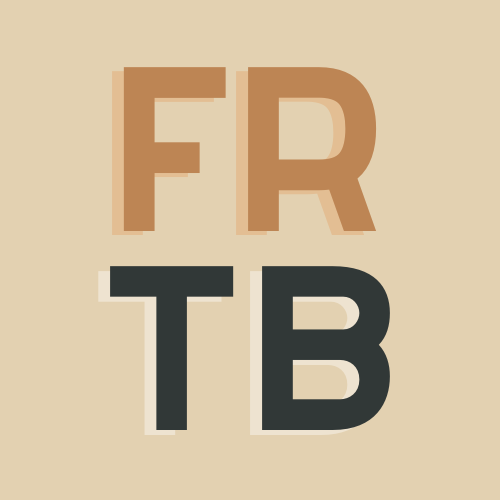The Quiet Work of Release

"I can't ask that. It's too personal." Miriam* shook her head at her husband's selection of a Passover themed conversation starter card. The cheerful matzah patterned back of the thick cardboard in contrast with her serious tone.
Trying to distract myself from the riot of panic and anxiety swirling inside me like a hundred ribbon dancers tangled together, I asked, "What's the question?"
Slightly awkward, she glanced at me while setting the card down, "What are you a slave to?"
I raised my eyebrows. "I have an answer to that, but it'll significantly change the mood of the table."
Multiple questioning stares were directed my way.
Miriam turned to me with quiet reassurance. "You don't have to answer if you don't want to."
I softly smiled in gratitude and then stated to the table far more confidently than I felt, "Complex PTSD."
It's always interesting to me to see the wide range of responses people give to uncomfortable truths. Some go awkward and silent, some change the subject, some leave the conversation, some try and make a joke, and sometimes there's an openheartedness to understand. All of these were present at the table upon my announcement.
While leaving an undeniable impression on everyone at my first seder, I was coming to terms with my own denial of a problem I hadn't been able to face until this Pesach. But what is Pesach and why would that trigger such an intense question in the hostess and an equally intense response from me?
Jewish holidays are rich with spiritual lessons. Pesach, or Passover, is no different. It is a quintessential Jewish holiday that honors the Exodus of the Israelites from slavery in Egypt. The name comes from the miracle surrounding God "passing over" the homes of the Israelites during the tenth plague in Egypt, which is called the death of the first born. It lasts eight days in the Diaspora, seven in Israel. During this time, Jews don't partake in leavened products, which we call ḥametz. Instead, we eat unleavened bread called matzah. The main ritual is the seder, which is a 14-step meal commemorating the Exodus from Egypt along with the potential for future redemption.
Preparing for Pesach involves an intense process of cleaning the home of all leaven: fermented food prepared from wheat, barley, oats, spelt, and rye. These grains can only be eaten as matzah, a specific type of flatbread with no yeast and cooked, start to finish, in under 18 minutes to prevent any naturally occurring fermentation. The cleaning not only involves removing what's in cupboards, but doing additional cleaning of surfaces in case of any fallen crumbs. All cooking instruments like dishes, pots, and cooking appliances are kashered, or made kosher for Pesach. Oftentimes, Jews will have separate dishes and cooking supplies for this reason. Foods meant for Pesach need the "kosher for Passover" symbol.
As I'm still very new to Jewish holidays, and don't live on my own yet, many of these preparation rituals I wasn't in a position to do. However, I wanted to honor Pesach in a meaningful way for me, a single and childfree woman in a period of transitioning homes. What symbolism could I focus on that would create what I was seeking?
Eventually, I took some time to consider a series of events that had occurred slightly prior to Pesach, which stunned me with how viciously they sent me spiraling. In the midst of the grief, I was furious and exhausted over how I felt hijacked by my system when facing certain kinds of triggers. This started me down a journey of resilience I couldn't have anticipated, am eternally grateful to, and was appropriately timed with Pesach. I realized that while I wasn't able to hunt down ḥametz at home, I could "hunt" for it within myself. But how?
I have bipolar disorder and ADHD, which means I'm no stranger to mental health processing and regulation. I had grown to be quite proud of my several year remission of bipolar and management of ADHD through medical and therapeutic treatment. This pride led me to the conclusion I had somehow "arrived" at the final destination. Then, after an end to a second marriage, cross country move, and some time and space to process, I realized something: I was no where near arriving. The last fifteen years of my life were filled to the brim with events woven together into a chaotic tapestry of complex trauma. I was stuck and had no clue how to change the pattern and threads of what was being woven. The process was beyond me, which was quite sobering.
A few days prior to this seder, I'd gone through some major stress around my car that took three days to resolve and many hours in the DMV. In the midst of this, I had my first two hour intake concerning the accelerated PTSD program I would be doing through Veteran Affairs, which left me feeling like my entire person was an open wound. Because of all this, things that normally wouldn't bother me all that much were causing me to feel like I was having a domino effect of overheating and shivering to being repeatedly stabbed in the gut while simultaneously dying of a heart attack. On top of which, I was desperately trying to mask the experience. As I said, hijacking.
So, I sat there and watched the reactions around me while quietly slipping back into the anxiety and panic that had been surrounding me throughout that entire day. Amanda Gorman puts it into startling clarity in her poem, "Fugue."
Anxiety is a living body,
Poised beside us like a shadow.
It is the last creature standing,
The only beast who loves us
Enough to stay.
This leads us back to answering the earlier question of why the hostess asked such a thing on a conversation starter card. My favorite part of the seder dinner is the time of questioning and reflection. This is done symbolically through the "four questions," which tells us why this night is different from all other nights. Traditionally, the children ask the questions, but if that's not possible anyone or everyone can ask the questions out loud. Even if an adult is doing Pesach alone, they are still supposed to ask the questions out loud. That's how important it is.
While slaves in Egypt, we weren't allowed to question or wonder. So, the ability to do so is a reflection of freedom, which is one of the major themes of Pesach. This became my answer to hunting for ḥametz inside myself to purge. I started asking more and more questions to find the "why" behind my unwillingness to heal from my Complex PTSD. More often than not, it led to more questions than answers. However, that began to give me great comfort as it meant I was starting the process of freeing myself from this personal oppression because of the reminder that the work is never done.
And why did I respond as I did at the table? I honestly can't answer that. I've been looking back and trying to figure out what overcame me to be so vulnerable with a group of people I barely knew. But what I've discovered is that the ultimate gift wasn't that particular question or even my answer, but the response of openness and sharing that came out of multiple people around the table concerning ways they understood and related to my statement. It put those who were uncomfortable at ease with a willingness to listen.
While my anxiety was still shrouded beside me for the rest of the dinner, I felt the start of a release of what had been pent up inside me. The moment I got into my car, I started ugly sobbing uncontrollably all the way home and then to bed where I wore myself out to sleep. Crying is one of the major ways I let go. When I finally let something out through crying, it's ultimately a relief because it means I'm no longer compartmentalizing it inside myself so it's best to let it take its course.
The next morning I woke up feeling lighter than I had for the past few weeks. However, the journey is far from over and is still continuing. I have an accelerated PTSD program I will be facing in the coming weeks that I'm trying my best to maintain a peaceful and open mind about. One of my cousins recently pointed out to me that I'd enter who I am now and leave an entirely different person internally. But I'd be lying if I didn't admit to the fact that I'm holding two distinct feelings of being terrified of how it will go while holding onto the excitement of the end result.
As one of my good friends likes to say, "It's all learning." And how can we best learn? Through questions.
*Names have been changed.





